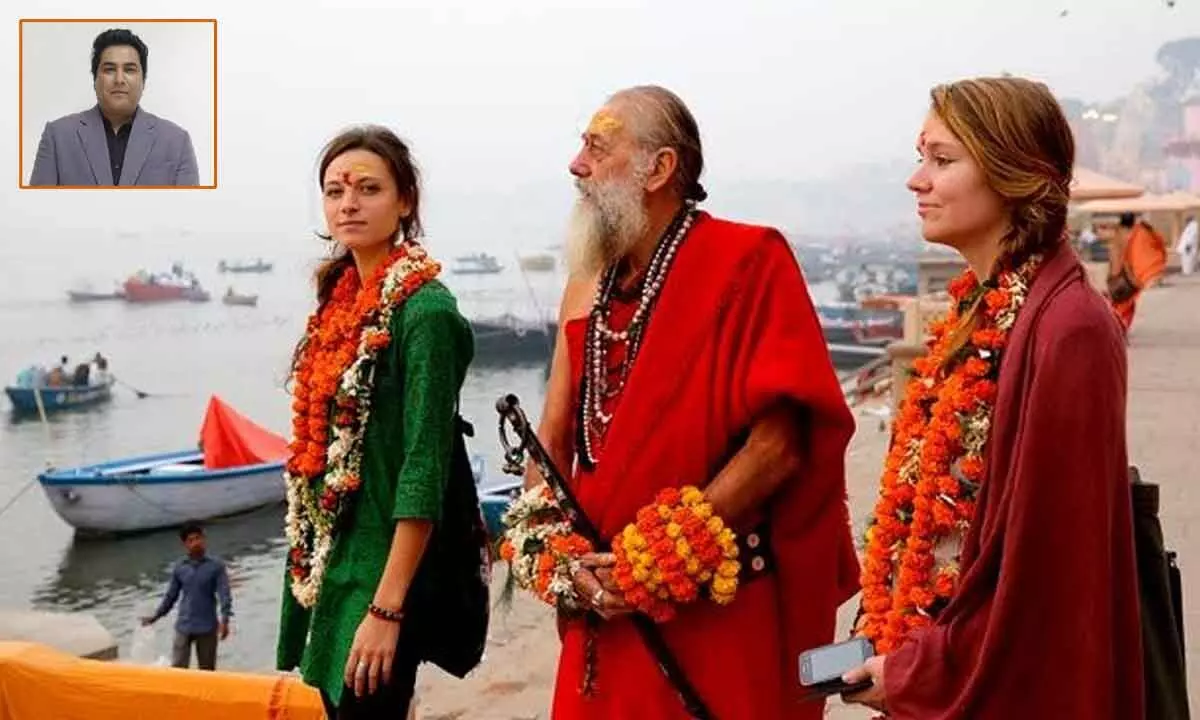Exploring the deep roots of spirituality in India

India, often referred to as the cradle of spirituality, boasts an intricate tapestry of ancient wisdom, diverse practices, and profound philosophies that have woven the fabric of its culture for millennia. From the sacred verses of the Vedas to the tranquil teachings of meditation and yoga, India’s spiritual heritage is a timeless journey into the depths of human consciousness. This article delves into the rich history, key practices, and enduring impact of spirituality in India.
The Historical Tapestry
Spirituality in India is deeply intertwined with its history, dating back thousands of years. The earliest spiritual texts, known as the Vedas, were composed around 1500 BCE. These texts contain hymns, rituals, and philosophical explorations that laid the foundation for Hinduism, one of the world’s oldest religions. In the subsequent centuries, India became a melting pot of cultures and beliefs, leading to the rise of other major religions such as Buddhism, Jainism, and Sikhism. Each of these traditions contributed to the country’s spiritual landscape, emphasizing concepts like compassion, non-violence, and self-realization.
Philosophical Pillars
Central to India’s spiritual philosophy is the concept of Dharma, which encompasses righteousness, duty, and cosmic order. Dharma guides individuals on a path of moral and ethical living, encouraging them to fulfill their responsibilities while seeking a deeper connection with the divine.
The pursuit of self-realization, known as Moksha, is another fundamental principle. Various spiritual paths, including Karma Yoga (the yoga of action), Bhakti Yoga (the yoga of devotion), Jnana Yoga (the yoga of knowledge), and Raja Yoga (the yoga of meditation), offer distinct routes to attaining Moksha.
Meditation and Yoga
India has gifted the world with practices that promote inner peace and holistic well-being. Meditation, often traced back to ancient Indian texts, is a technique for stilling the mind and attaining heightened awareness. Vipassana, Transcendental Meditation, and Mindfulness are just a few examples of meditation techniques rooted in Indian spirituality. Yoga, meaning “union,” is another significant contribution. Asanas (postures) and Pranayama (breath control) are components of Hatha Yoga, a popular branch that focuses on physical well-being. Beyond the physical aspect, Yoga is a spiritual journey that harmonizes the body, mind, and soul, facilitating self-discovery and self-transformation.
Festivals and Rituals
India’s spiritual fervor is vividly expressed through its vibrant festivals and rituals. Diwali, the festival of lights, celebrates the triumph of light over darkness and good over evil. Holi, the festival of colors, signifies the arrival of spring and the dissolution of social barriers. Kumbh Mela, a colossal gathering, witnesses millions of pilgrims bathing in sacred rivers to cleanse their souls.
These festivals and rituals not only provide a sense of unity but also serve as a powerful medium for individuals to connect with their spiritual roots and forge a deeper connection with the divine.
Global Impact
India’s spiritual legacy has transcended its borders, captivating the hearts and minds of people worldwide. The teachings of renowned spiritual leaders like Mahatma Gandhi, who advocated nonviolent resistance, and Swami Vivekananda, who introduced Indian philosophy to the Western world, have left an indelible mark on global thought and activism.
The practice of yoga and meditation has become a universal phenomenon, embraced by millions for its profound impact on mental, emotional, and physical well-being. Ayurveda, India’s ancient system of natural healing, has also gained international recognition for its holistic approach to health.
Spirituality in India is a kaleidoscope of ancient wisdom, diverse practices, and profound philosophies that continue to inspire and transform lives. From the philosophical depths of the Vedas to the serenity of meditation and the dynamism of yoga, India’s spiritual heritage offers a timeless roadmap to self-discovery, inner peace, and a harmonious existence. As the world navigates the complexities of modern life, the profound teachings and practices of Indian spirituality remain a guiding light for those seeking a deeper connection with themselves and the universe.
(The author is an Indian Changemaker and Entrepreneur)











